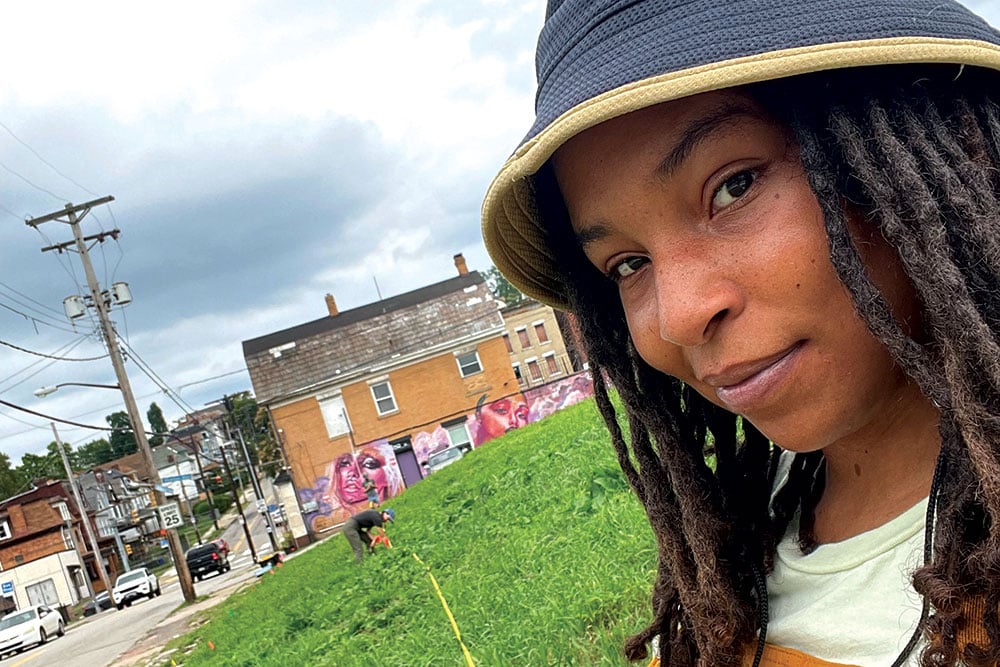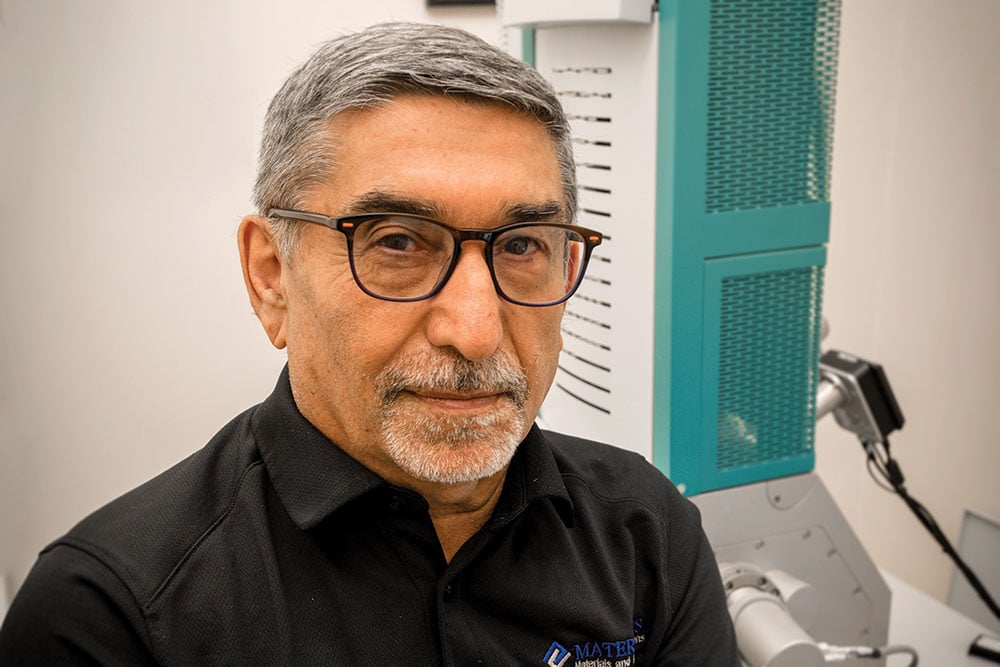Profile: The Hilltop Gardeners, Raynise and TaRay Kelly
The Soil Sisters aim to conquer Pittsburgh’s food deserts.

RAYNISE KELLY (PICTURED), ALONG WITH HER SISTER TARAY, AIM NOT ONLY TO GROW FOOD FOR THEIR HILLTOP COMMUNITY BUT ALSO TO OFFER EDUCATION AND OPPORTUNITIES FOR ECONOMIC ADVANCEMENT. | PHOTO COURTESY SOIL SISTERS
For Raynise Kelly, food is just the beginning.
Raynise and her sister TaRay Kelly are the brains — and green thumbs — behind Soil Sisters, a plant nursery on Beltzhoover Avenue in Allentown working to provide the community with not only herbs and vegetables but also education and economic advancement.
“It’s really exciting to still be able to keep the space in our family and actively do something with it,” says Raynise, 35, an alumna of Bidwell Training Center’s horticulture program and a full-time Learning Garden Educator with Grow Pittsburgh. She also runs community meetings on for-profit food access.
Soil Sisters began about five years ago as a pop-up and moved into its brick-and-mortar three years later. It offers houseplants and seedlings that the sisters grow on-site, as well as workshops on how to grow food and protect it from the region’s unpredictable winters.
The idea, Raynise says, came as an epiphany while she was preparing a meal for her daughter.
“I started realizing that I didn’t have fresh food when I went to go access it,” she says. “None of my peers were really thinking in that way in terms of a community garden or establishing a garden at home.”
TaRay was all ears. She works as a groundskeeper at the University of Pittsburgh, serves on the board for Grow Pittsburgh and is a member, along with Raynise, of the Black Urban Gardeners and PA Farmers Union.
“My sister is such a trooper. She was just like, ‘OK, whatever you want to do,’” Raynise says.
Soil Sisters is one of many Hilltop businesses to receive assistance from the Hilltop Alliance, a nonprofit that aims to “fill up the vacant storefronts and have a vibrant business district,” according to Meg O’Brien, its director of economic development.
But while the Alliance may provide things like grants, rent abatement programs and marketing training for the area’s up-and-coming business owners, it’s community members like the Kelly sisters who, O’Brien says, are on the ground doing the real work. And it’s work that she says is sorely needed.
Nearby East Carson Street, the South Side Flats’ main thoroughfare, is an area of access — and often of excess. But up the road sits the Hilltop, a grouping of 11 neighborhoods where, for many residents, the closest grocery store is two buses away.
“The neighborhoods around the Hilltop are secluded in a food desert,” says Rain McCoy, the communications coordinator for the Hilltop Alliance. “All of the 11 neighborhoods have their own identities and histories, but they do share a lot of the same struggles.”
Food deserts are urban areas in which access to fresh, healthy and high-quality food is sparse. The Hilltop neighborhoods — Allentown, Arlington, Arlington Heights, Beltzhoover, Bon Air, Carrick, Knoxville, Mount Washington, Mount Oliver City and Mount Oliver Borough, South Side Slopes and Saint Clair — may offer some of the best views of Pittsburgh from their nooks on the titular hill, but offering a grocery store is another story.
The Soil Sisters are hoping to bridge that gap. Raynise and TaRay are Hilltop natives, born and raised in the communities their nursery serves. They’re in the process of purchasing four vacant lots surrounding their property to develop into an urban farm, growing and selling crops from leafy greens like kale, collards, lettuce and arugula to warmer-weather staples like tomatoes, peppers, eggplants and zucchini.
They’re also in the process of building a greenhouse nearby on Gearing Avenue — on the plot that held their grandparents’ home before it was destroyed by a fire in 2010. They’ve already laid the foundation, and much of the structural work is complete.
Once the urban farm is up and running — something Raynise says could take two or three years, but will be well worth the wait — they hope to expand and offer a marketplace of their own, as well as paid positions for local workers.
“Some people who struggle with accessing food, you figure they sometimes have a hard time accessing jobs, as well,” Raynise says. “That’s one of the goals: establishing economics in the community and being able to offer … financial security in exchange for doing work at the farm.
“We’re really excited about the direction of our business,” she says. “There’s so many things that are going to happen.”















